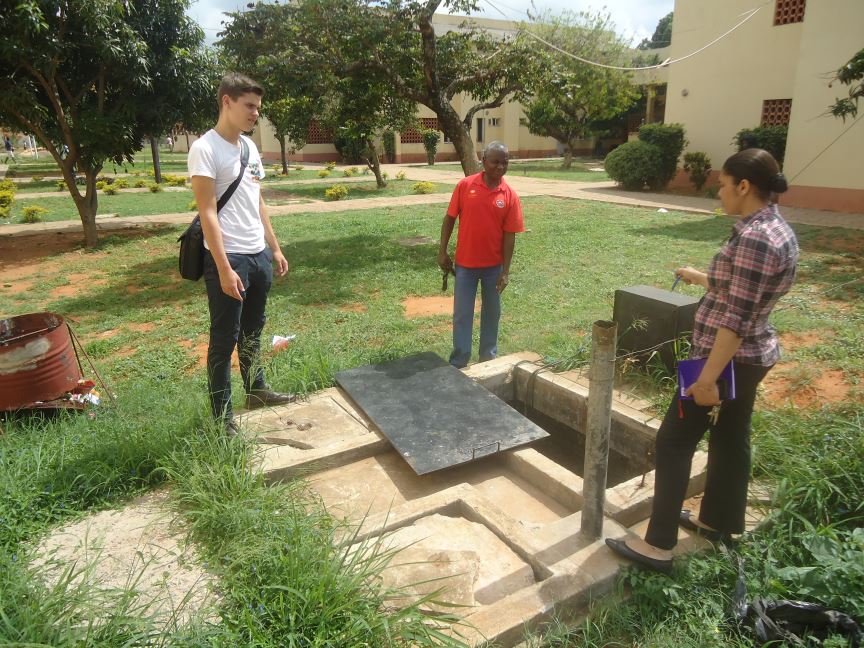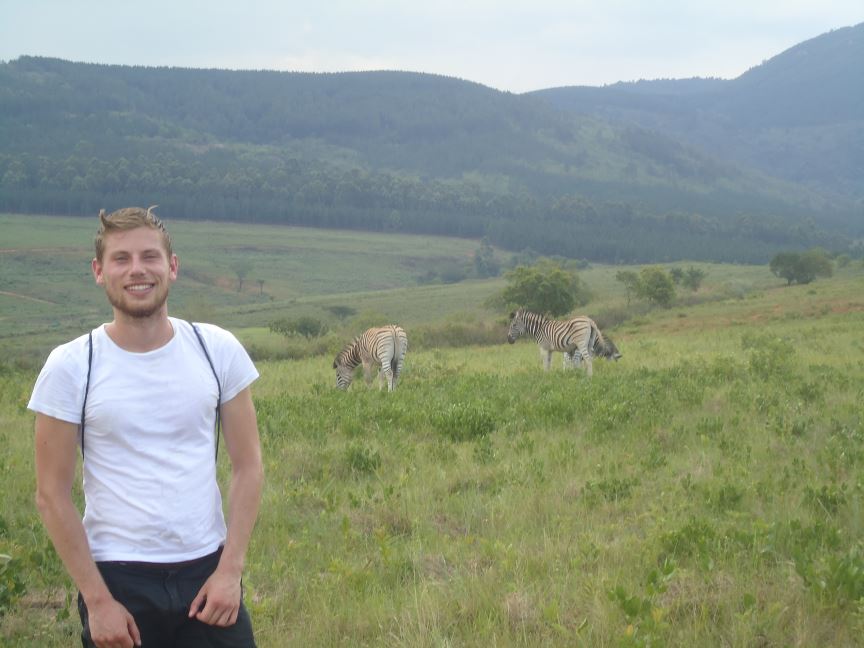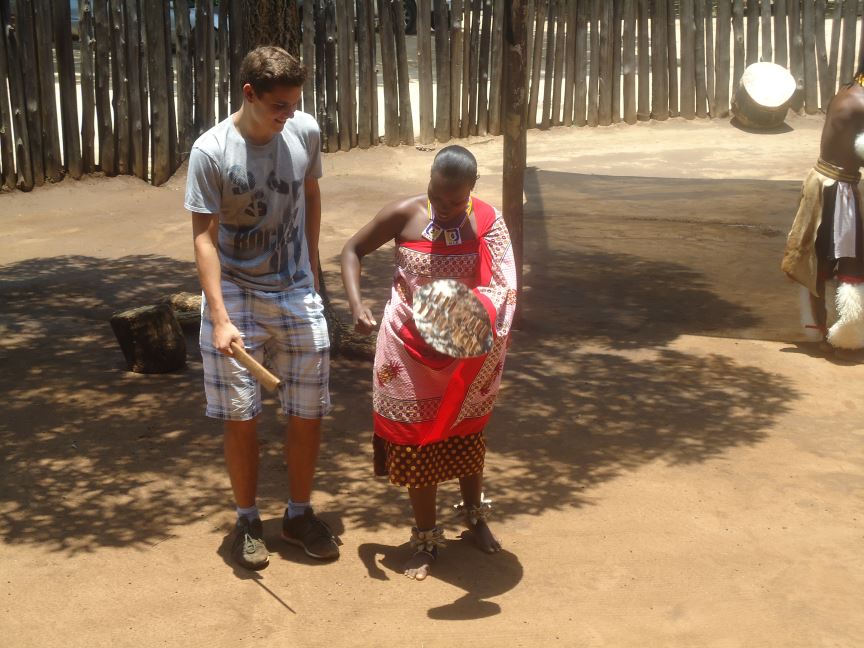By Jesse Salet and Hidde Schijfsma
In our last weeks in Maputo the focus of our work was on the developing and environmentally sustainable solution for the sewer produced within UEM Campus. When we walked around the campus with Mr. Congolo for the second time, we gathered several details about the system: the black, grey and rainwater is collected separately at the campus; the black water is treated in septic tanks and afterwards collected again together with the grey water. Finally all the wastewater, including rainwater, is infiltrated into the ground or discharged into the bay, which at the moment is heavily polluted. We also found out that a lot of groundwater is abstracted to irrigate the campus which, given local conditions, is not environmental sustainable. An even more important aspect is that one of the faculties uses the groundwater directly as tap water. Since the septic tanks effluent in infiltrated nearby, this might be a point of attention.

Second tour over the campus with Mr. Congolo and Noor
After finding out about the issues of the sewerage system of the campus, it is time for us to come up with some solutions – we came up with the idea of treating the effluent of the septic tanks by means of constructed wetland and slow sand filters. This is a relatively robust way of treatment and low on maintenance. Furthermore, the treated wastewater can be used to irrigate the campus. We have done calculations to check all the details of our treatment process and made a final design.
In the weekend we went to Swaziland and had a great time over there. We learned a lot of things about the traditional Swazi culture. For example that when you want to marry over there you have to pay your parents in law 15 cows and that you can have as many wives as you can afford; the king of Swaziland, for example, has 15 wives and picks out a new one every year. While in Swaziland we also rented mountain bikes and went to the Mlilwane National Park. The views were breathtaking and there were wild animals everywhere: zebras, kudus, hippos and even crocodiles.
Because we are almost at the end of our stay in Maputo, we did a presentation over here where we showed our research results. In a couple of days we have to leave Maputo to finish our report back in the Netherlands. There is a time of coming and there is a time of going and at the end of this week the time of going is coming. We had an amazing time over here and we met a lot of nice people. We want to thank everybody that helped us with our project: Muito Obrigado!
We will keep you updated about the final stage of our project.






















